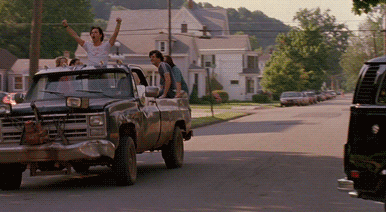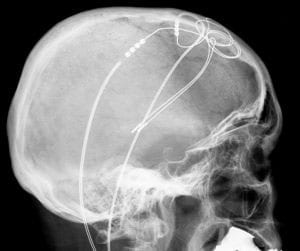When you think of 14-year-old boys, what do you think of? Rough-housing, raging hormones, an abundance of energy, maybe a little teenage rebellion?

Source: giphy.com
Often that’s the case, but Cooper Wilson, a 14-year-old with dystonia, had more critical things to focus on.
Wilson was born with the neurological disorder that causes the body to painfully twist and contort, so it’s all he’s ever known. However, that doesn’t make it any easier. He struggled with very simple tasks, such as buttoning his shirt or writing his name.
After several attempts to relieve his symptoms with medication and physical therapy, Wilson and his family decided to try a more drastic measure—a rare brain surgery called deep brain stimulation.
Dr. Tim Feyma took the lead on the surgery. Because the surgery is complicated, it requires 15 people who are completely locked in and focused on the task at hand. During the procedure, doctors implant a device with “wire-like electrodes.” The electrodes run up to Wilson’s brain, using a battery pack that’s surgically inserted under the collarbone. Doctors hope that by inserting these devices, they can counteract the shaking and twisting that Wilson experiences.

Since 2012, 18 surgeries of this kind have been performed on dystonia patients.
Though it was a frightening and risky decision for Wilson to make, the surgery paid off for him; he has much more control over his symptoms. Wilson and his doctors have a remote control device that can adjust his settings with a push of a button.
Nowadays, Wilson is able to be a 14-year-old and experience the things most 14-year-old boys do.

Resources to learn more about dystonia, or to find support:
- National Institute of Neurological Disorders and Stroke (United States)
- Dystonia Medical Research Foundation
- The Dystonia Society (UK)





